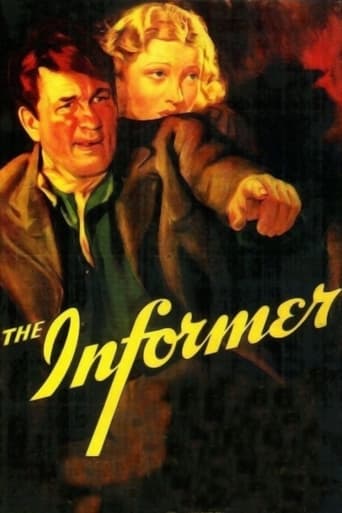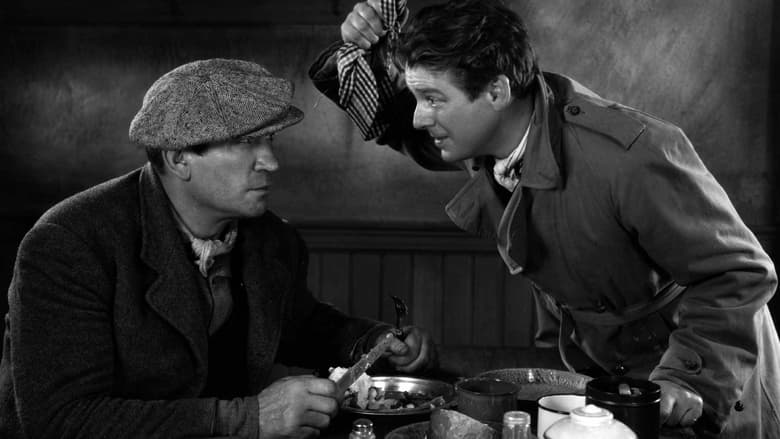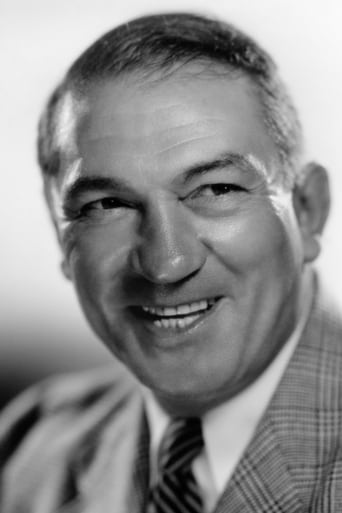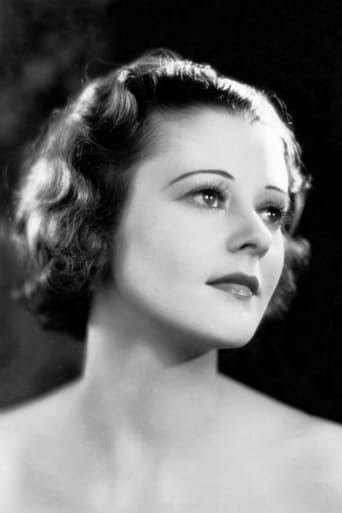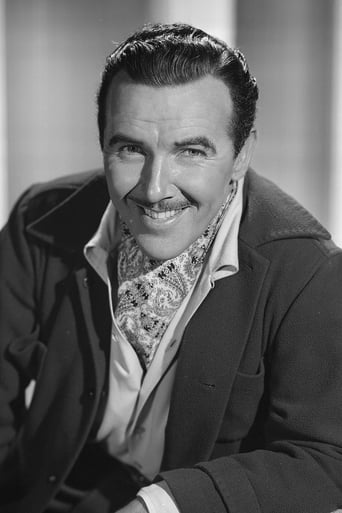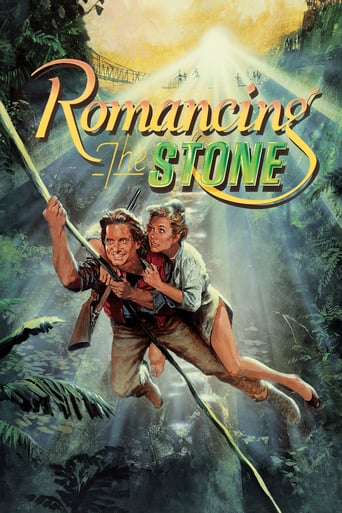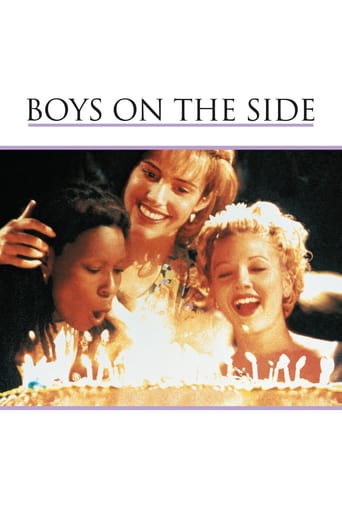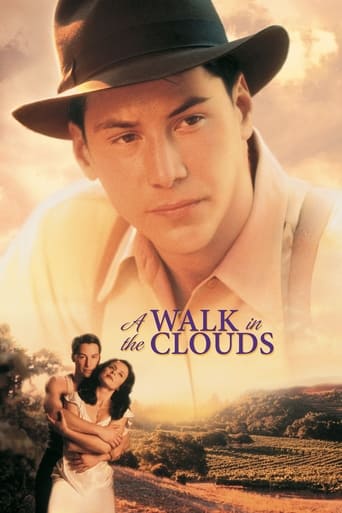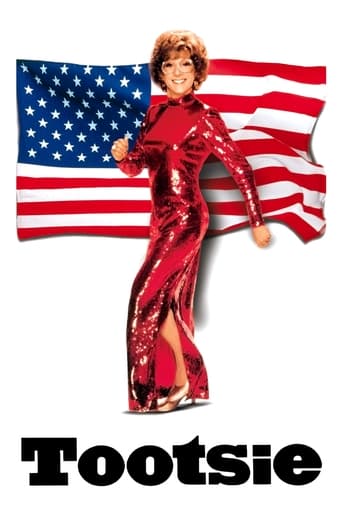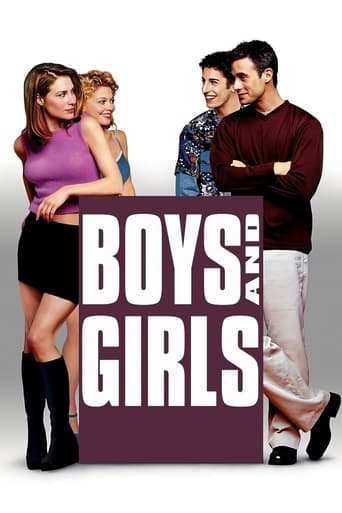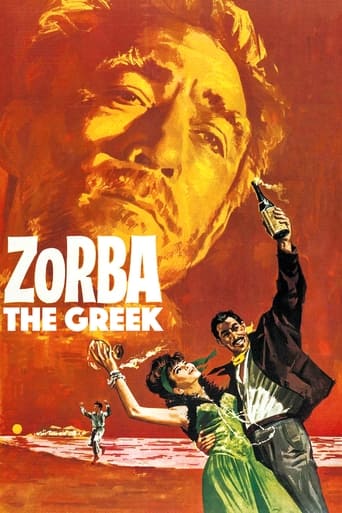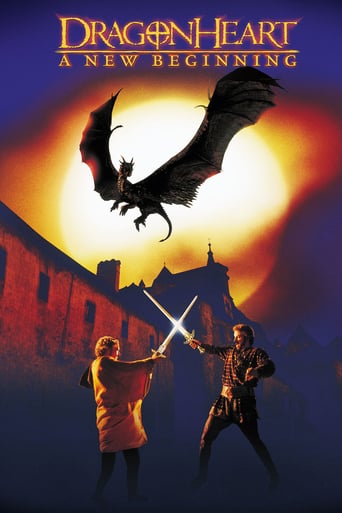The Informer (1935)
Gypo Nolan is a former Irish Republican Army man who drowns his sorrows in the bottle. He's desperate to escape his bleak Dublin life and start over in America with his girlfriend. So when British authorities advertise a reward for information about his best friend, current IRA member Frankie, Gypo cooperates. Now Gypo can buy two tickets on a boat bound for the States, but can he escape the overwhelming guilt he feels for betraying his buddy?
Watch Trailer
Free Trial Channels
Cast


Similar titles
Reviews
Waste of time
n my opinion it was a great movie with some interesting elements, even though having some plot holes and the ending probably was just too messy and crammed together, but still fun to watch and not your casual movie that is similar to all other ones.
Strong acting helps the film overcome an uncertain premise and create characters that hold our attention absolutely.
Close shines in drama with strong language, adult themes.
THE INFORMER (RKO Radio, 1935), produced and directed by John Ford, is an atmospheric and symbolic drama of betrayal that takes place in one solid night. Dark and moody in the "film noir" style made famous in the 1940s, it stars the big and rugged Victor McLaglen in his most famous movie role. In spite of all the earmarks of being a real sleeper, THE INFORMER won Academy Awards for Best Director (John Ford); Best Screenplay (Dudley Nichols); Best Original Score (Max Steiner) and most of all, Best Actor (Victor McLaglen). Liam O'Flaherty's 1925 novel had already been produced as a 1929 British film starring Lars Hanson as Gypo Nolan, the version that should be a real curio for anyone who have seen the McLaglen version many times. Regardless of its novel and early film origins, this 1935 edition, reminiscent to a Bible story about a man "not knowing what he's doing," is obviously the best retelling of all.The story, set on a certain night in strife-torn Dublin (Ireland) in 1922, begins with this opening statement: "Then Judas repented himself - and cast down the thirty pieces of silver - and departed." Gypo Nolan (Victor McLaglen) is a slow-witted man with no money in his pocket, struggling to survive his day by day existence. (Six months prior, he was dismissed from the Irish Republican Party). He saves his girlfriend, Katie Madden (Margot Grahame), also stricken from hunger, from selling herself on the dark streets to a total stranger blowing cigarette smoke in her face, for money. After seeing posters for the reward capture of his friend, Frankie McPhillip, wanted for murder, Gypo is suddenly approached by Frankie (Wallace Ford) while eating at the Dunboy House. He learns from his hounded friend that he's in town briefly to visit with his mother mother (Una O'Connor) and sister, Mary (Heather Angel). Desperate for money and his love for Katie wanting to go to America and start life anew, Gypo goes to the authorities, informing on Frankie and where he could be found. During Frankie's visit with his mother and sister, police barge in, followed by a shootout, killing Frankie. News reaches the station where Gypo is given his twenty pound reward. Though he is not suspected for being the informer, those who know Gypo notice him acting strange and jumpy, all wondering why a penniless man should now have enough money to treat bar patrons to drinks. Dan Gallagher (Preston Foster), who loves Mary, working as a commissioner of the IRA , hires Gypo to search for and gun down Frankie's informer. Following a series of lies, naming Peter Mulligan (Donald Meek) as the informer, Gypo lives to regret his becoming guilty of suspicion. Other members of the cast include: J.M. Kerrigan (Terry); Neil Fitzgerald (Tommy Cooper); Gaylord Pendleton (Dennis); and May Boley ("Aunt" Betty). D'Arcy Corrigan is especially notable as the blind man witness, along with Una O'Connor (Mrs. McPhillip), Margot Grahame and Joseph Sawyer (billed Joseph Sauers in the credits) giving small but standout performances. That's Dennis O'Dea playing a the street singer in the similar manner as he did in John Ford's other RKO Radio 1936 releases of MARY OF SCOTLAND and the forgotten THE PLOUGH AND THE STARS (1936). While this dark and gloomy tale starts off well, it slows down at the midway point before picking up again prior to its most famous climatic finish that honored McLaglen his well-deserved Academy Award win. With the story set during the Irish Rebellion with a principal cast of Irish actors, during the days of broadcast television dating back to the 1960s, THE INFORMER was an annual event usually televised on or around St. Patrick's Day (March 17th). Distributed on video cassette in the 1990s, and later on the DVD format, THE INFORMER did have cable television broadcasts, notably on American Movie Classics (prior to 2001) and Turner Classic Movies. THE INFORMER may be slow pacing, too talkie and heavily underscored for first time viewers, but it's definitely worth seeing. (****)
Like many people here, I started out finding my patience being tried by this film. By the end, I actually shed a few tears.It seems to be in the nature of most old films to drag for 7/8th length and then catch fire right at the end. Older film-goers learned to bide their time patiently through the slow parts, calm in the knowledge that the big payoff is on the way. But that isn't quite accurate. You see, to earlier audiences, what are to us the "slow parts" were the main body of the story. They watched and found anecdotal and thematic interest there. Modern audiences, post-Spielberg, are in a constant state of waiting to be hit with a small climax every two minutes when they see older films. It's the inflation problem of modern movies. Well, that isn't going to happen. It is not necessary to apologize for these films; it is simply that you have to adjust your expectations and personal rhythm when you watch them. At this point, the difference between Avatar and The Informer is like the difference between Euripides and a traveling production of Rent. Think about it for a minute or two. Not to strain at the obvious, but Euripides still deserves a hearing.The "exciting part", for most modern viewers, begins with the IRA tribunal scene and escalates to the final couple of minutes, which, if you are at all on board or even paying attention by that time, will tear your heart out. It's not some high-tone universal abstract plea for forgiveness; it's a plea from one dimwit, and those who feel sorry for the big lummox, for a little mercy. It's that personal, and that embarrassingly naked an appeal. For after being mad at Gypo, irritated at him, thinking this is the dumbest character of all time, you finally find yourself won over by the scene of Gypo's erstwhile girlfriend pleading to another woman to talk her man into going easy on him. The film may be sentimental, but the sentimentality is not cheap as some here have charged. There's a matter of life and death that plays out here, and as long as you take the proposition of one life to a customer seriously, it's sentimentality wrung out of the most serious stuff.8 of 10. And the fault for it not being 10 of 10 is my own and in some measure yours, if you are reading this. We have all asked for more, ever more, faster, ever faster until we cannot put ourselves in 1935 -- just yesterday, really -- as easily as we should be able.
Maybe it's because I looked up the history of the Irish troubles in the 1920s and then the sad Civil War that engulfed the Free State after the signing of the treaty before watching this movie. Anyway, the sudden turn at the end brought tears to my eyes.Victor McLaglen isn't as famous today as he was back then, and he should be better remembered. In this film, I think he's playing himself as he would have been without his innate talent and brains. For example, the scenes where his buddy in the crowd is challenging men to fight with him is probably quite reminiscent of what McLaglen actually did in earlier years, when he was a world-class bare-knuckles boxer. John Ford is partly responsible for that; the IMDb trivia section shows how he tricked McLaglen into getting a really bad hangover for the trial scene. This director also could bring out a lot in his actors, even without such tricks. Mostly, though, McLaglen is firmly in control, especially when his character is almost totally blotto (which is difficult for an actor to do believably), and he also plays Gypo Nolan with a depth and emotional power that is surprising for someone who has only seen McLaglen later in his career, in "The Quiet Man." I especially like the contrast between this role as an IRA man and the much more obviously controlled performance he gave as the IRA man Denis Hogan in "Hangman's House." In "The Quiet Man," of course, McLaglen is a country squire at odds with the local IRA. Victor McLaglen was big and bully, in the old-fashioned sense of the word, but he was a good actor, too, and capable of wide range and fine nuances of performance that we just wouldn't expect of a such a man today. It's a rather sad comment on our own set of expectations and prejudices.Ford, as usual, packs a lot into a little bit of film. All the characters are excellent (though the Commandant's mostly American accent is distracting) -- NOTE: There be spoilers ahead! -- Knowing that Gypo once drew the short straw and was ordered to kill a man but let him talk his way out of it instead, we really empathize with the man who draws the short straw for executing Gypo, and the humanity he shows, most notably when they go to take Gypo in Mary's room. John Ford really shows his genius here, taking what could have been a gruesome and yet expected outcome to the whole story and instead using it to set up a totally unexpected and yet very satisfying ending that makes us think not just of Gypo and the other characters, but of poor Ireland during that tortured time.
Informer, The (1935) **** (out of 4) Incredible story of a man (Oscar winner Victor McLaglen) who informs on a friend and then is haunted by guilt while Irish rebels try to figure out who the informer was. I'm really not sure which side Ford was on because the film makes you think about both sides and what the outcome should be. For me personally, I felt sorry for McLaglen and didn't want anything bad to happen to him. I understood the rebels side of things but at the same time I found that they were pretty hypocritical and I wonder if Ford was going after this as well especially since the movie ends in a Church. I haven't read any books on Ford so again, I'm not sure which side he was on but the movie certainly makes you think about everything you've watched. McLaglen is downright brilliant in his role and I'd say this is one of the greatest performances I've ever seen. The rage, sadness and confusion he brings to this character is quite startling to watch. The supporting cast is very good as well and features strong performances by Heather Angel, Preston Foster, Margot Grahame, Joe Sawyer and Donald Meek. Wallace Ford and Uno O'Connor both are good in their small roles. Ford's direction is top notch as he perfectly captures the mood and feeling of the story. The cinematography is also terrific and really puts you in the setting. This is a rather unique little film that works on many levels.

